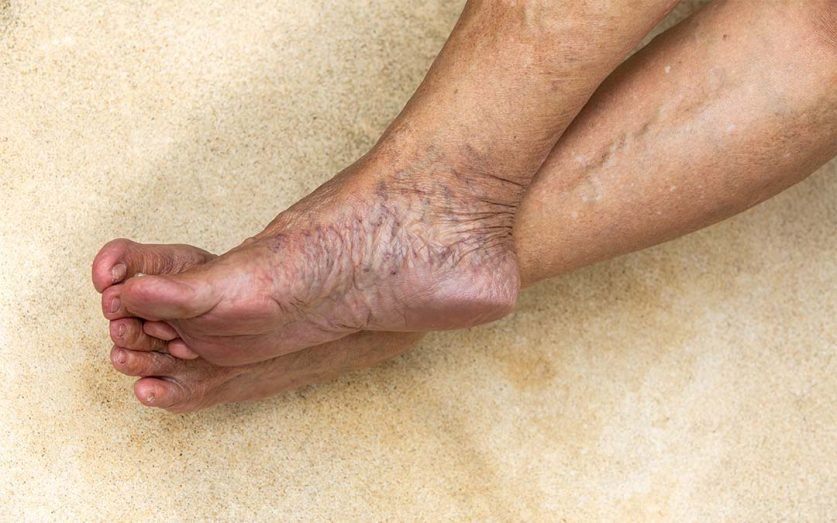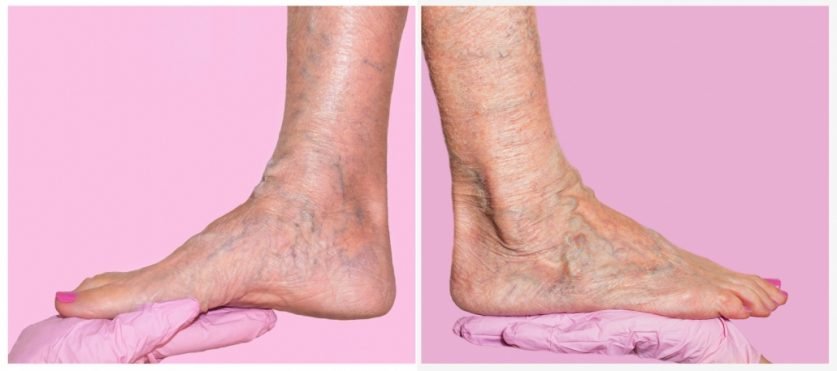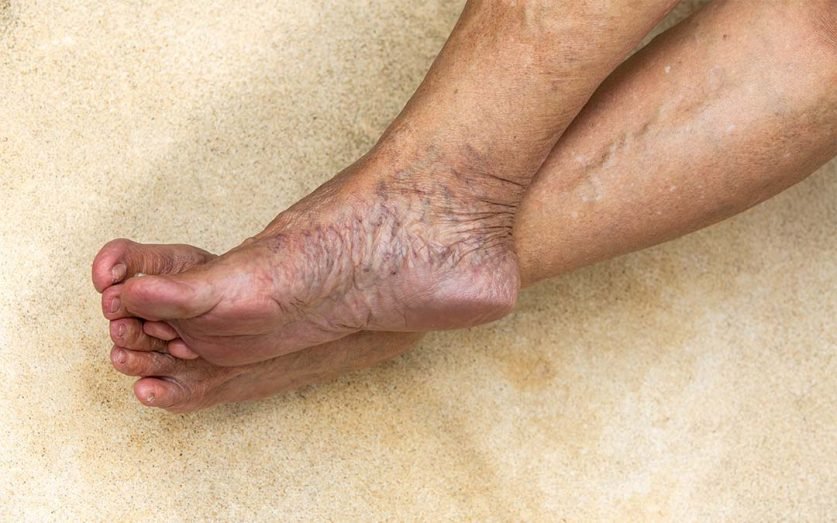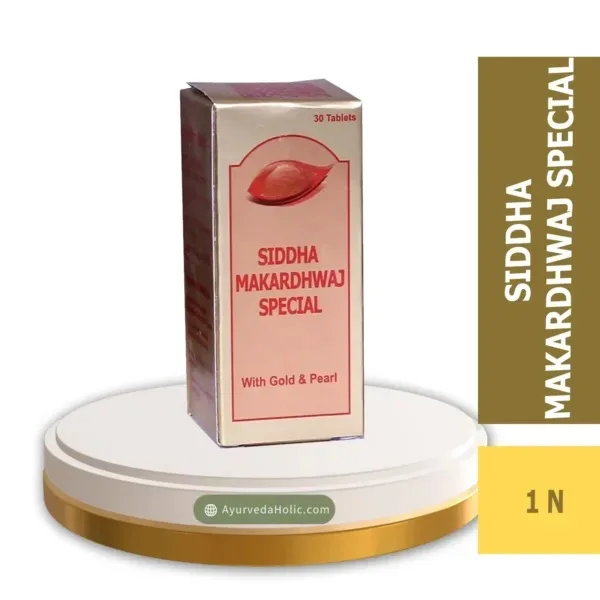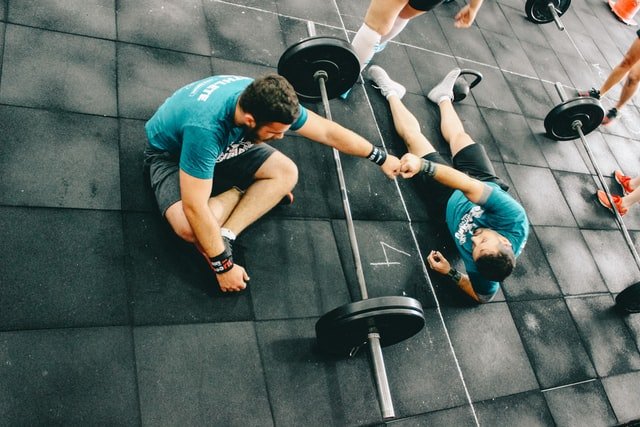Tag: What Kind of Doctor Treats Varicose Veins
What are the types of vein diseases?
Veins are thin-walled structures with valves that keep blood flowing in one direction. Your heart pumps oxygen-rich blood to the body's thick arteries: and the veins return that blood to the heart. Veins are located close to the skin's surface and are called superficial veins. Damaged veins will hinder blood flow and backflow when your muscles relax, which creates unusually high pressure in the veins. Moreover, this stretches and twists the veins, increasing swelling, valve incompetence, and sluggish blood clot formations. Eventually, this issue can know as venous disease. Venous disease is quite common. According to reliable studies, many people are affected by vein disease, which does not pose a significant health risk. However, thrombophlebitis can be a severe and life-threatening condition affecting millions of people. Varicose Veins Varicose veins are twisted, swollen, and discolored near the skin's surface and occur when weak valves allow blood to flow backward or stagnate in the veins. Chronic obstruction of the veins also causes various veins, but in most cases, this can't be detected. They commonly appear in the legs or lower legs, or when this happens in the anus, called hemorrhoids. The chances of getting affected are higher in women than men because of pregnancy, contraction, and the menstruation cycle. Veins doctor eliminates them for cosmetic and medical reasons when they cause discomfort. What Kind of Doctor Treats Varicose Veins? A doctor who treats problem-related to veins, arteries, and capillaries is called a varicose surgeon or veins doctor. Superficial Thrombophlebitis Thrombophlebitis is a severe inflammation of the veins, especially in the single leg, that may cause due to response of blood clotting in the vessels. Which occurs in veins near the surface of your skin; it is called superficial thrombophlebitis, a minor disorder commonly identified by red and tender veins. It would be best if you considered visiting a doctor in case of severe pain and discomfort. Deep-vein Thrombophlebitis Deep vein thrombophlebitis, which affects the large veins farther below the skin's surface, is a more severe condition. It may procedure fewer symptoms initially; in half of the cases, there are no symptoms, but it carries the risk of pulmonary embolism. Pulmonary embolism is when the clot detaches from its origin and travels to the lungs and heart, possibly leading to death. Also, you may have chronic venous insufficiency if the blood outflow to the veins, resulting in dermatitis and increased skin pigmentation and swelling. When should I contact a dentist? You should call a doctor if you feel any pain or swollen vein that does not disappear or unexplained swelling in your lower legs. What are the signs and Symptoms of venous disease? Varicose Veins: Enlarged, swollen, and a cluster of purple veins, swelling in the legs, or aching sensation in the lower legs. Itching skin above the affected area, discoloration, and in severe condition, ulcer. Superficial thrombophlebitis is a condition in which you have large cordlike veins associated with localized swelling, pain, and tenderness. Conclusion When to see a Vascular Doctor? Any vein disease is severe if left untreated; therefore, you should consider visiting a doctor for thorough treatment and diagnosis if you find any signs and symptoms.
What Are the Stages of Chronic Venous Insufficiency?
Chronic venous insufficiency (CVI) is a common problem people may suffer from after age 40. This can cause visible veins, itching, pain, and swelling. The treatment for CVI may depend on various factors such as severity and time progression in stages. Also, each stage shows different signs on your body and requires a specific type of treatment; therefore, you should visit your doctor for proper diagnosis and treatment of your issue. But if you are confused about that, What kind of doctor treats varicose veins? Vascular surgeons, who treat your infected varicose veins, are specially trained in all aspects of vascular issues, ranging from mild to invasive treatment and complex surgery. CVI diagnosis and staging Chronic venous insufficiency (CVI) is a health condition affecting the lower body's veins. Initially, CVI can cause very few symptoms, which are hard to spot. CVI can possess some symptoms such as: Pain Swelling Skin damage Ulcers Stages or levels can help your doctor with regular reporting and diagnosis, so your doctor can treat the issue properly. Your doctor will stage your CVI from diagnosis to throughout your treatment. First, they will do a physical examination and evaluation of the situation to diagnose CVI. They'll inspect your skin condition, such as bulging or veins. They'll see a swelling called edema or pain while touching your skin. Tests and reports To review your condition, your doctor will review your medication and the cause of swelling, itching, and pain. They might also conduct tests to exclude other causes of edema, including: Congestive heart failure Any Liver and Kidney related issue Lymphedema Diabetes Cysts or growths During your check-up, your vein doctor will see the structure and functioning of your veins. Also, these reports will allow your doctor to diagnose and stage your CVI. Specific tests might include: Venous duplex imaging is your doctor's ultrasound to see veins and how blood flows through them. Air plethysmography: is a test in which your doctor will use a small and painless tool to estimate how much swelling in your leg changes when you move in different positions. These treatments are good enough to treat CVI, but some people wonder how much does varicose vein treatment cost. Your varicose veins treatment is covered by insurance because they are necessary for a health emergency. However, if your insurer does not cover varicose veins, you can use some at-home treatment. At-home remedies Apart from doctor's treatment, there are some steps you can take to manage your CVI problem at home. You can use compression stockings while going to sleep to prevent swelling. If you stand or sit prolonged for hours, you can relax for a while and do some exercises such as stretching. You should keep your legs elevated above your heart level. Keep your legs well-moisturized and clean. Therefore, you should visit your veins doctor for treatment.
What Are Varicose Veins And Its Treatments?
Many people aren’t able to identify if they are suffering from varicose or spider veins because they lack knowledge about the vein disorder. In this article, we have mentioned all the gathered information about varicose that will be useful for you if you are suffering from varicose veins so make sure to read this article if you want to know more about its treatment. What are varicose veins? Varicose veins are the veins that are enlarged, swollen and p[ainful. These veins generally appear on your legs and face due to improper blood circulation and blood clots. Vein disorder doesn’t cause you any harm until it is serious, many doctors suggest exercise daily and change in diet for the people who are suffering from the initial stage of varicose veins. What are the signs of varicose veins? Here are some signs of varicose vein disorder induing mentioned below: Swollen and twisted veins Large and bulgy veins Discoloration in the skin of your legs Painful veins Muscle cramps Heaviness in legs Difficulty in standing Burning Throbbing sensations Itchy legs What causes varicose veins? Here are some causes of varicose veins that you should know, with the help of these causes you can easily avoid the development of varicose veins: Hormones change including pregnancy and menopause Aging process Overweight Tight clothing Excessive force on the vein due to standing for long periods When should I be worried about varicose veins? A person should start worrying about vein disease when they are witnessing some of these problems including: severe and prolonged hours of pain in their legs. If you suffering from heaviness in your legs Itchiness in legs Not able to stand for long hours Tenderness in your veins Swollen veins These were some signs that you should not avoid in varicose veins and visit a vascular surgeon for treatment. Are varicose veins covered by insurance? The vein disease is generally covered in insurance but there can be a chance of not. So make sure to ask your vein specialist when you visit the doctor’s clinic for an initial consultation about your vein treatment. Make sure to ask your doctor in the first place about insurance coverage. What is the treatment for varicose veins? There are many treatments available for varicose veins suggested by a vein specialist including some of this mentioned below: Elevation your legs Exercise daily Lost weight Change in diet increase in high fiber Compression stockings: Sclerotherapy therapy Laser therapy Vein surgery is also known as ligation and stripping What kind of doctor treats varicose veins? For treating your varicose veins you must visit a vascular surgeon or a vein specialist. A vein specialist or a vascular surgeon specialist is a doctor that specializes in treating vein disorders with the help of the best training and decades of experience in vein removal treatment. Conclusion We hope you liked this article and now you have a piece of good knowledge with you about varicose veins and their treatment. If you are someone looking for a vein specialist then make sure to visit our website where you can find as many vein specialists and treatment-related articles that will help you in your treatment.
Popular Categories
- Blog (13)
- Dental (138)
- Diet And Nutrition (15)
- Fitness (33)
- Health (194)
- Lifestyle (25)
- Mind & Body (15)
- Weight Loss (16)

